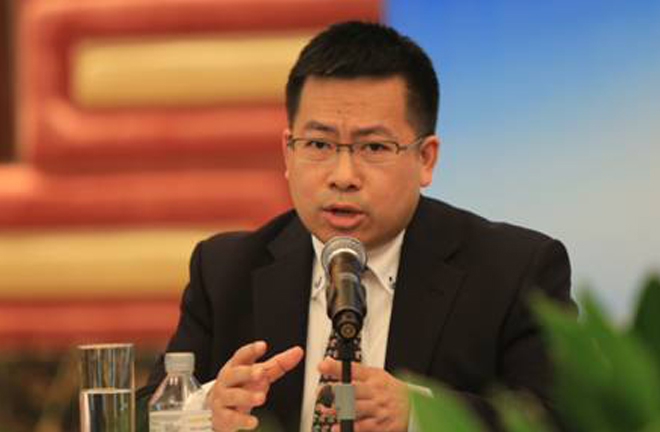RUAN ZONGZE : China, Latin America fostering community of common destiny
 From Nov. 17 to 23, Chinese President Xi Jinping visited Ecuador, Peru and Chile and attended the 24th APEC Economic Leaders’ Summit in Lima, capital of Peru. This is Xi’s third visit to Latin America, which marks a new stage of China-Latin America relations.
From Nov. 17 to 23, Chinese President Xi Jinping visited Ecuador, Peru and Chile and attended the 24th APEC Economic Leaders’ Summit in Lima, capital of Peru. This is Xi’s third visit to Latin America, which marks a new stage of China-Latin America relations.
China, Latin America and the Caribbean countries together account for one-fifth of the world’s land area, one-third of the world’s population and one-eighth of the global economy. China has become the second-largest trade partner of Latin America while Latin America has become the second-biggest destination for China’s overseas investment after Asia. In recent years, China-Latin America relations have maintained sound development momentum with two outstanding characteristics.
First of all, bilateral relations between China and Latin-America are thriving. President Xi has visited 10 Latin-American countries over the past three years, vigorously advocating the development of China-Latin America relations. Ecuador, Peru and Chile all have a profound traditional friendship with China.
The basis for cooperation between the two sides is solid. Xi’s visit has not only cemented traditional friendly relations but also comprehensively promoted mutual political trust and the level of pragmatic cooperation.
China and Ecuador have decided to elevate their relations to the level of a comprehensive strategic partnership in order to push forward the development and prosperity of both countries. Peruvian President Pedro Pablo Kuczynski visited China on his first foreign trip after he took office in June. He also invited President Xi to attend the APEC Summit hosted by Peru in November. Heads of China and Chile have reached a unanimous decision to promote the relations of both sides to the level of a comprehensive strategic partnership based on the 2012 China-Chile strategic partnership.
In addition, a multilateral platform for China-Latin America cooperation is being forged. The first ministerial meeting of the Forum of China and the Community of Latin American and Caribbean States (CELAC) was held in Beijing in 2015. It has become a new mechanism for strengthening China-Latin America relations and conforms to the current tendency for developing countries to deepen overall regional cooperation.
China and Chile will continue to advance the construction of the China-CELAC Forum. China applauds Chile’s decision to hold the forum’s next ministerial meeting in 2018. President Xi delivered an important speech on China-Latin American relations in the Peruvian Congress, stressing that both sides should hold high the banner of peaceful development and cooperation and build together the giant ship of China-Latin America community of common destiny.
President Xi attended the 24th APEC Economic Leaders’ Conference and delivered a keynote speech, presenting China confidence at the crucial stage of global economy and intensifying the consciousness of the community of common destiny. This year marks the 25th anniversary of China’s accession to APEC. China has been the active participant in and contributor to APEC and played an important role in pushing forward the construction of partnerships in the Asia-Pacific region.
In his keynote speech at the APEC CEO Summit in Lima, Xi highlighted the importance of firmly pursuing the construction of the Free Trade Area of the Asia-Pacific, energizing trade and investment to drive growth, making free trade arrangements more open and inclusive, and upholding the multilateral trading regime. This indicates that China will continue to boost Asia-Pacific regional economic integration and play a constructive role to enhance the prosperity of the regional economy.
The “Chinese Scheme” has brightly embodied China’s mission and responsibility while encouraging people to have confidence about free trade. China’s development is the opportunity of not only Latin America but also the whole world. The ship of the China-Latin America community of common destiny is sailing to a promising future.
This article was translated from People’s Daily Overseas Edition. Ruan Zongze is the executive vice-president and senior fellow at China Institute of International Studies.

 PRINT
PRINT CLOSE
CLOSE